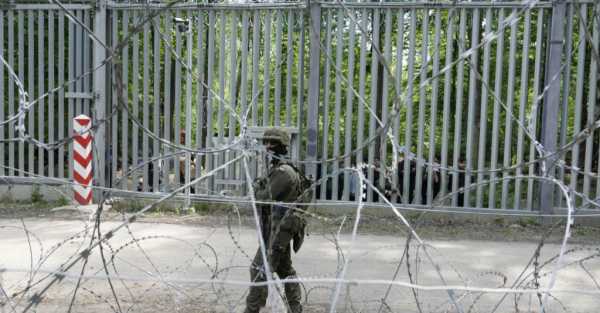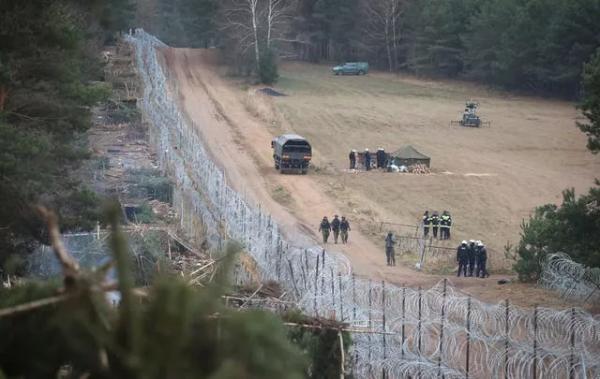
Poland reintroduced restrictions on movement along parts of the border with Belarus on Thursday because of increased migration pressure that has involved violence against security officials.
The ban will be in force for 90 days and affects 60km of the land border between Nato member Poland and Belarus, an autocratic state aligned with Russia.
The border between Poland and Belarus runs for about 400km.
Polish prime minister Donald Tusk’s government said the purpose of the so-called buffer zone is to ensure the safety of outsiders, as well as the border guards, soldiers and police who work in the area.
It said it is also aimed at limiting the activities of people smugglers who have been facilitating irregular migration at that border.
Residents and those working or studying in the area will be able to access the border areas, but others will require permits.

Refugee rights activists are unhappy with the decision because they say it will prevent them from reaching the area to help migrants who cross the border and need medical or other assistance.
Since 2021, EU authorities have accused authoritarian Belarusian president Alexander Lukashenko of weaponising migration by luring people to his country to find an easier entry point into the EU than the more dangerous routes across the Mediterranean Sea.
Poland’s previous government reacted to the arrival of migrants by building a steel barrier and imposing a state of emergency in 2021, which has since expired.
The number of attempted illegal border crossings from Belarus into EU-member Poland has again been growing recently, and Polish officials say they are seeing aggressive behaviour by some migrants on the Belarus side of the border.
They have posted online videos showing migrants throwing rocks, logs and even burning wood at Polish troops from behind the fence.
One Polish soldier was fatally stabbed by a migrant in late May.
Sourse: breakingnews.ie